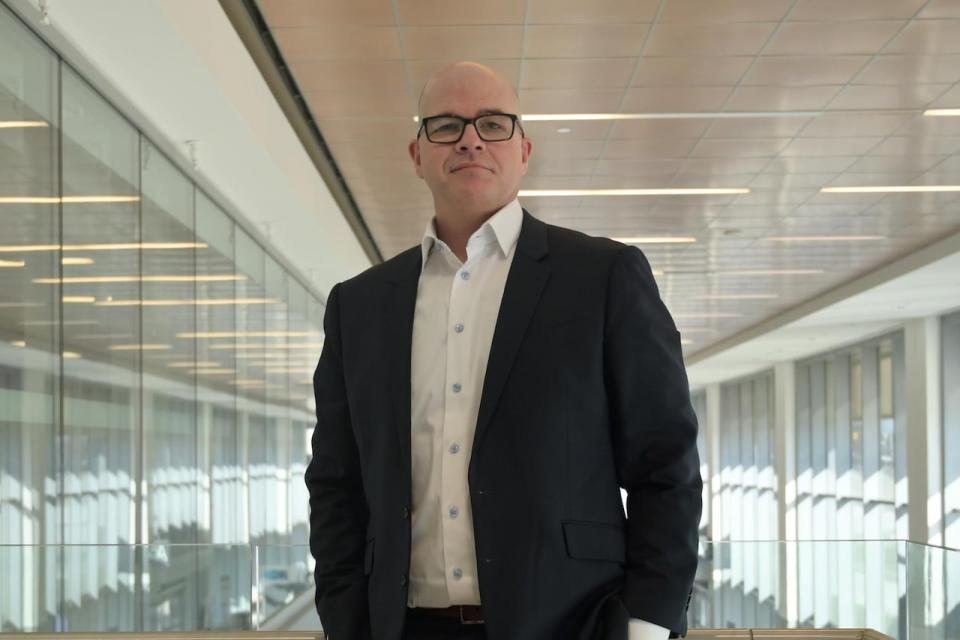


Toronto police are embedding officers at three of the city’s emergency rooms in a new pilot they say will reduce the time their officers spend with people in crisis — but some advocates worry their presence could discourage people from seeking help.
Police say when an officer apprehends someone under the Mental Health Act and takes them to the hospital, they often have to stay with them for hours as they wait to get care — an issue they want to address to bring them back to their main policing duties faster.
The special constables, labelled integrated hospital officers, will be at Toronto Western Hospital, Unity Health Toronto and Humber River Health, for 18 hours, seven days a week to assume the safe transfer of patients instead.
The pilot, which began Monday and is set to run for a year, will see two constables stationed at the ERs of each hospital collaborating on the project.
Peter Voros, vice-president of clinical programs at Humber River Health, said within the first two days of the pilot, officers were able to hand patients over to the specialized constables and return to their regular job within roughly 25 minutes — beating their target of 45 minutes.
“It really means that police are able to be out in the community doing their role, not sitting in an emergency department waiting for a very busy doctor to see someone,” he said, adding that Humber River sees more mental health apprehensions in the ER than any other hospital in the GTA.

Peter Voros is the vice-president of clinical programs at Humber River Health. (Submitted by Humber River Health)
Marnie Escaf, a senior vice-president at University Health Network, said there are also great benefits to having consistent officers in their ER.
“Because it’s the same individuals, we’re able within the department to develop relationships,” she said.
Scope of officers’ role limited, TPS and hospitals say
But Diana Chan McNally, a community worker, said she’s worried about the possibility of officers in the ER doing a lot more than just accompanying people in crisis.
“Are we also looking at a case where they may also be surveying other people in the room? If someone has an outstanding warrant, are they going to be arrested in the emergency room if they’re there?” she said.


Diana Chan McNally, a community worker, said she’s worried about the possibility of officers in the ER doing more than just accompanying people in crisis. (Submitted by Diana Chan McNally)
Doris Grinspun, CEO of the Registered Nurses’ Association of Ontario, said constant police presence in the ER could dissuade people from going there, especially those coming from marginalized groups.
“I’m not blaming the police, but they have not had positive encounters, right?” she said.
In a written statement, Toronto Police spokesperson Nadine Ramadan said “this pilot has no intention of policing hospital waiting rooms and emergency departments. We are not looking to arrest people through this pilot.”
Voros from Humber Health and Escaf from UHN assured that officers stationed in their ER will only be limited to helping the transfer of patients.
“They would never engage beyond their quite limited scope unless we were to specifically request that,” said Escaf.
Both added that ideally, the pilot will actually result in fewer officers in the ER
Voros said that on a busy day, “you can have three, four, five [patients] each with two police officers waiting to hand over care,” as opposed to the two who are stationed at the hospital and can free up the other constables.
‘Why do we need the police?’
Both McNally and Grinspun said a better solution would be if officers didn’t accompany those apprehended under the Mental Health Act to the hospital at all, instead having a trained crisis worker stay with them.
“I’ve seen people who have been put in cuffs, put in the back of a cruiser because they’re experiencing a health crisis. It often escalates that crisis and makes it worse,” said McNally.
The Toronto Police Accountability Coalition and CAMH have also previously called for the removal of uniformed police from the front lines when helping people in crisis.
Escaf said officers stationed at their hospital will be unarmed and wear different coloured uniforms, making them look less like traditional police officers.
“So that in of itself hopes to destigmatize patients,” she said.
But to Grinspun, that doesn’t make a difference.
“Unless they look like a healthcare professional, I don’t see how that will be the case,” she said, adding that instead, hospitals should hire more specialized nurses who can stay with patients.
“There are nurses who have expertise in mental health. Why do we need the police?”